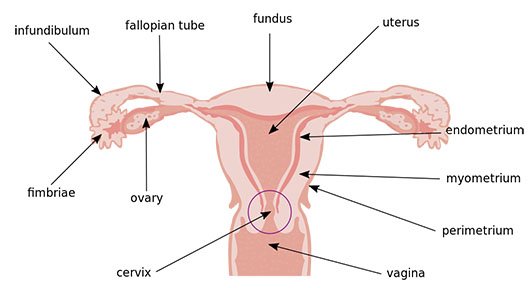
Ectopic pregnancy is a potentially life-threatening condition where a fertilized egg implants outside the uterus, most commonly in the fallopian tubes. Understanding the causes, recognizing the symptoms early, and seeking timely medical intervention are crucial for the health and safety of those affected Understanding the symptoms, causes, and treatment options is crucial for early diagnosis and effective management.
What is an Ectopic Pregnancy?
An ectopic pregnancy occurs when a fertilized egg implants and grows outside the main cavity of the uterus. The most common site for an ectopic pregnancy is within a fallopian tube, a tubal pregnancy but it can also occur in the ovary, abdominal cavity, or the cervix. Unlike a normal pregnancy, an ectopic pregnancy cannot proceed normally and requires immediate medical attention.
Causes of Ectopic Pregnancy
Several factors can increase the risk of ectopic pregnancy, including:
- Previous Ectopic Pregnancy: A history of ectopic pregnancy significantly raises the risk.
- Inflammation or Infection: Sexually transmitted infections (STIs) like chlamydia or gonorrhoea can cause inflammation in the fallopian tubes.
- Fertility Treatments: Assisted reproductive technologies, such as in vitro fertilization (IVF), may elevate the risk.
- Tubal Surgery: Procedures on the fallopian tubes can lead to adhesions or damage.
- Birth Control: Certain forms of birth control, especially intrauterine devices (IUDs), are associated with an increased risk.
- Smoking: Tobacco use can affect the fallopian tubes and increase the likelihood of an ectopic pregnancy.
- Maternal Age: Women aged 35-44 have a higher risk compared to younger women.
Symptoms of Ectopic Pregnancy
Early symptoms of ectopic pregnancy can mimic those of a normal pregnancy, such as missed periods and breast tenderness. However, other symptoms may indicate an ectopic pregnancy:
- Sharp or stabbing pain in the abdomen or pelvis, often on one side
- Vaginal bleeding or spotting that is different from a normal menstrual period
- Shoulder pain due to blood leaking into the abdomen, irritating the diaphragm
- Weakness, dizziness, or fainting resulting from internal bleeding
Diagnosis of Ectopic Pregnancy
Diagnosing an ectopic pregnancy involves several steps:
- Medical History and Physical Exam: The doctor will assess symptoms and perform a pelvic examination.
- Ultrasound: A transvaginal ultrasound helps visualize the location of the pregnancy.
- Blood Tests: Measuring levels of the hormone hCG (human chorionic gonadotropin) can help determine the status of the pregnancy.
- Laparoscopy: In certain cases, a laparoscopy may be necessary to confirm an ectopic pregnancy.
Treatment Options for Ectopic Pregnancy
Treatment depends on the size and location of the ectopic pregnancy and the patient’s condition:
- Medication: Methotrexate can be used to stop the growth of the pregnancy tissue.
- Surgery: Laparoscopic surgery is often performed to remove the ectopic pregnancy and repair any damage. In severe cases, an open surgery (laparotomy) may be necessary.
- Expectant Management: In rare cases where the ectopic pregnancy is resolving on its own, close monitoring may be sufficient.
Preventing Ectopic Pregnancy
While not all ectopic pregnancies can be prevented, reducing risk factors can help:
- Practice safe sex to reduce the risk of STIs.
- Quit smoking to lower the risk.
- Regular medical check-ups to monitor reproductive health, especially if there’s a history of ectopic pregnancy or other risk factors.
Conclusion
Ectopic pregnancy is a serious condition that requires immediate medical attention. Early recognition of symptoms and understanding the risk factors can help in prompt diagnosis and treatment. If you suspect that you may have an ectopic pregnancy, seek immediate medical care.
References
- American College of Obstetricians and Gynecologists. (2023). Ectopic Pregnancy.
- National Health Service. UK (2023). Ectopic pregnancy.
- Centres for Disease Control and Prevention. (2023). Ectopic Pregnancy.
RECENT POSTS
- The Differences in a Twin Pregnancy: What You Need to Know
- What is the significance of bleeding at different stages of pregnancy?
- How to Cope with Claustrophobia: Effective Strategies for Managing Anxiety
- 50 Great Bible Quotes Relating to Pregnancy
- 10 Tips for Getting a Baby to Sleep
- How Much Sleep Does a Baby Need? A Comprehensive Guide for New Parents
- How to Make Money with ChatGPT: A Comprehensive Guide
- Unexplained Infertility: What Can You Do. Advice and Guidance
- The Benefits of Mindfulness: A Practical Guide to a Healthier and Happier Life
- Constipation During Pregnancy: Causes, Prevention, and Relief
- Pregnancy Myths, Superstitions, and Old Wives’ Tales: Fact or Fiction
- Endometriosis: The Impact on Fertility and Pregnancy
- Disabled and Pregnant: Equality Problems and Solutions
- Meconium Clinical Significance and Warning Signs
- Hypnosis in Pregnancy and Delivery: A Comprehensive Guide
- Pregnancy Tests: What is Amniocentesis? Your Complete Guide.
- Study at Home for a New Job or New Career: Your Path to Success
- What is Advanced Maternal Age?
- Essential Guide to Changes in Pregnancy
- Buying for a New Baby: The Essentials
Leave a Reply